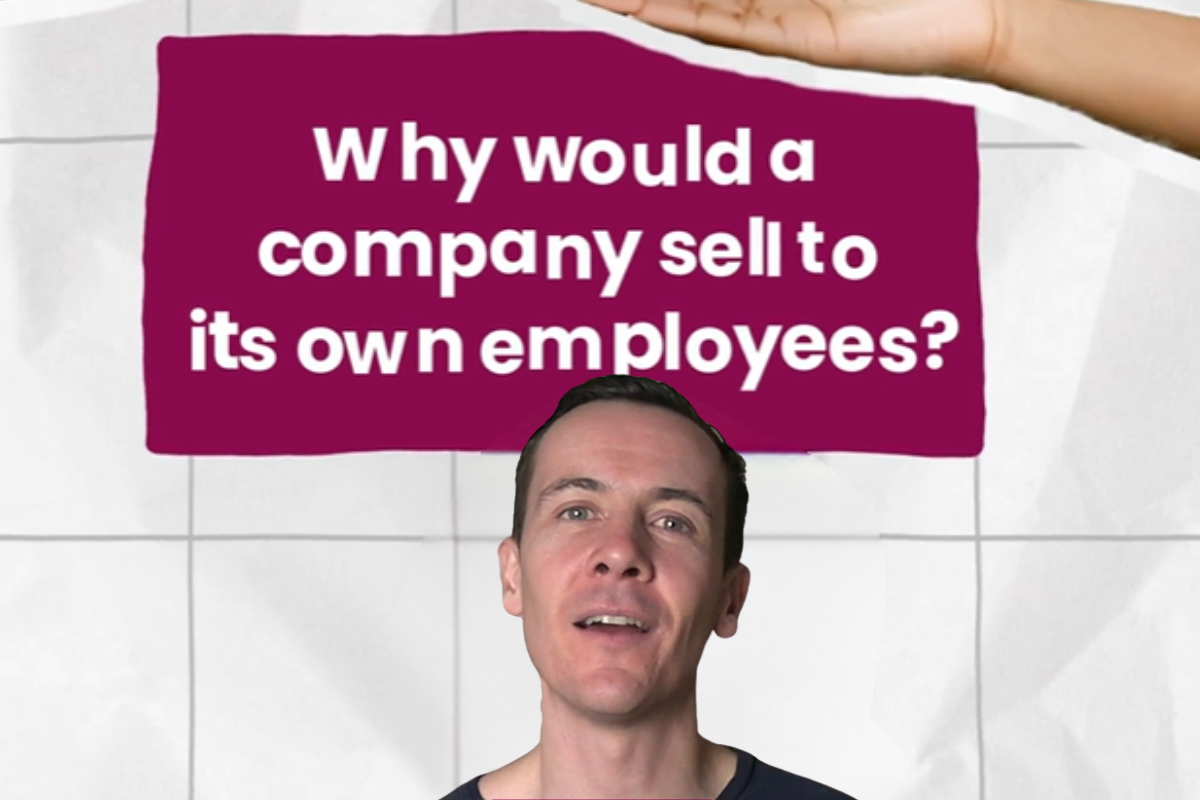TORONTO, Apr. 19, 2024 – Social Capital Partners welcomes the federal government’s decision to explore options to unlock the potential of employee ownership trusts (EOTs) as part of Canada’s economic recovery. This is a first step toward making broad-based employee ownership a more significant part of our economy. Social Capital Partners produced Building an Employee Ownership Economy in October 2020, a report calling for the establishment of EOTs in Canada, as a way to grow Canada’s comparatively low levels of employee ownership.
“There is a large body of research from around the world that points to employee ownership trusts as a powerful tool to reduce wealth inequality, support business succession, protect local jobs, and promote economic resilience,” says Jon Shell, managing partner of Social Capital Partners. “It’s great to see the government recognize that employee ownership could be part of rebuilding a more inclusive, more resilient economy.”
In the US and the UK, employee-owned companies grow faster, pay better, are less prone to lay-offs or bankruptcies in economic downturns, and are more likely to keep jobs in local economies. Due to public policy that encourages their use, EOTs are a popular structure for business succession in those countries, where they have generated significant wealth for front-line employees. EOTs are common in the US, where 14 million employees own $1.4 trillion in shares at over 6,000 companies. Since their introduction in the UK in 2014, they have become increasingly popular, with almost 100 companies becoming employee-owned in 2019 alone. Canada does not have a business structure comparable to the employee ownership trust.
“There is a large body of research from around the world that points to employee ownership trusts as a powerful tool to reduce wealth inequality, support business succession, protect local jobs and promote economic resilience.”
A recent survey by the Canadian Federation of Independent Business (CFIB) suggests significant interest among Canadian business owners in employee ownership. Fifty-nine percent of respondents were either strongly or somewhat in favour of introducing policies similar to the US and UK, and 53% said they were more likely to sell to their employees if such a policy were introduced.
“Canadian business owners are very community-oriented. We think employee ownership in Canada can be even more successful than the US and UK with the right policies in place,” said Shell. “That would mean more Canadian companies staying Canadian-owned.”
Canada’s current regulatory environment makes selling to employees very difficult. “As a business owner who believes in the power of employee ownership, I’m really excited to see it in the budget. It’s been very difficult, and taken a very long time, for me to sell some of my company to my employees. It should be a lot easier,” said Peter Deitz, Co-Founder and Board Chair of Grantbook. His comments echo those of Geoff Smith, CEO of EllisDon, one of Canada’s largest employee-owned companies, in a video he posted this past month encouraging the government to implement employee ownership trusts.
“Given the benefits, a made-in Canada approach to broad-based employee ownership should be a priority for policymakers that are looking to strengthen Canada’s economic recovery and increase the well-being of Canadians over the long-term,” says Shell.
Share with a friend
Related reading
Market study submission: Competition in financing for Canada’s SMEs
Small- and medium-sized businesses (SMEs) face significant barriers to accessing capital and we believe that the lack of competition in the banking sector is one of several important contributing factors. We provided comment on the Competition Bureau's upcoming market study on SME financing because we believe that unlocking capital for SMEs and entrepreneurs will strengthen the Canadian economy, bolster our sovereignty and provide more Canadians with pathways to building wealth. We look forward to seeing how the evidence collected will help inform policymakers interested in tackling this issue.
Watch the video: Why would a company sell to its employees?
Canada is facing a $2-trillion business handoff. What if employees owned more of it? In this video, our Director of Policy Dan Skilleter explains why a company would sell to its own employees, how it happens and who stands to benefits. Spoiler alert: employee-owned companies are shown to be 8-12% more productive, share more wealth with their workers, keep businesses Canadian-owned and shore up the resilience of local communities and the broader economy.
How Canada can curb the serial acquisitions quietly reshaping our economy
In many cases, threats to the affordability of everyday goods and services are the byproduct of what competition experts call serial acquisitions—a pattern of larger firms buying up a series of smaller players to try and corner the market. As Michelle Arnold and Kiran Gill explain, a fair and competitive economy does not emerge by accident. The Competition Bureau's proposed Merger Enforcement Guidelines will play an important role in preventing bigger firms from creating unfair playing fields that hurt Canadian small businesses, workers and consumers. The next step for the bureau should be aggressive enforcement of the new guidelines.


